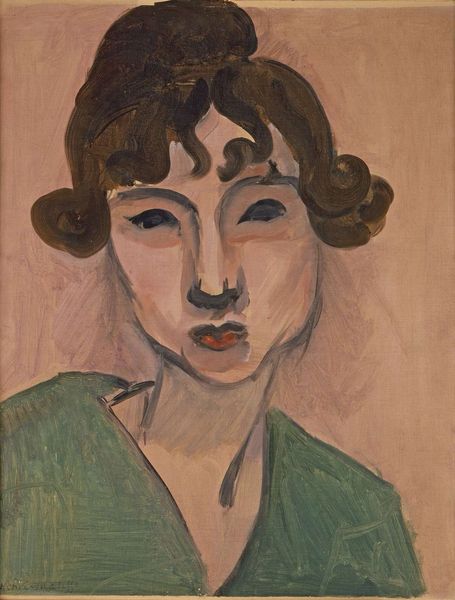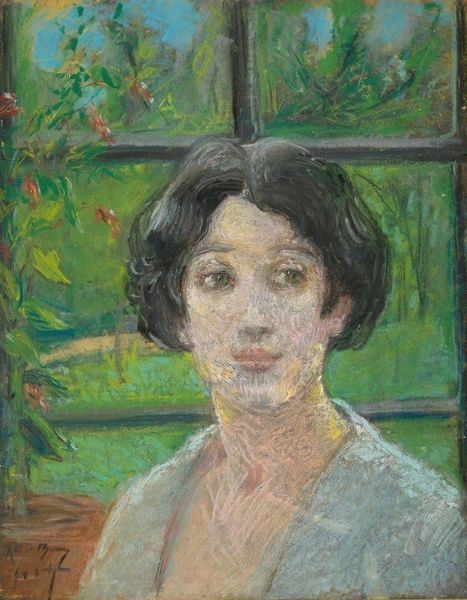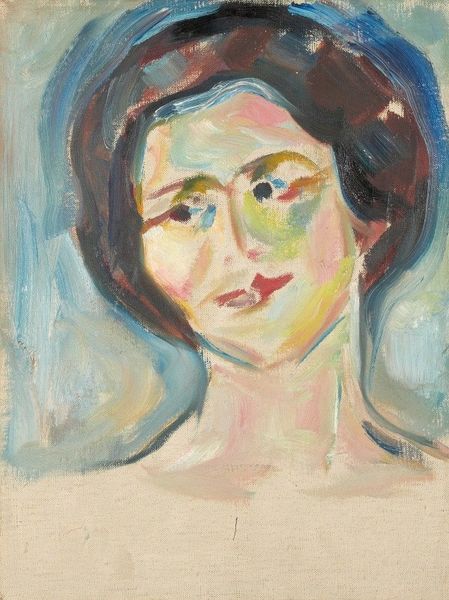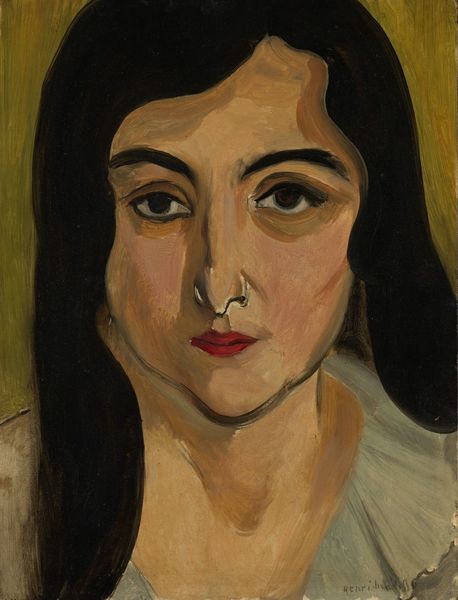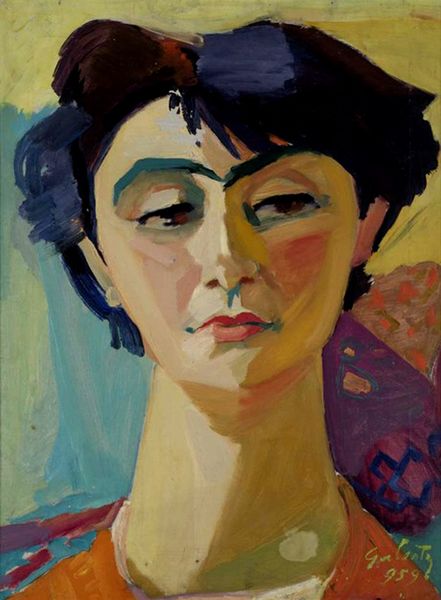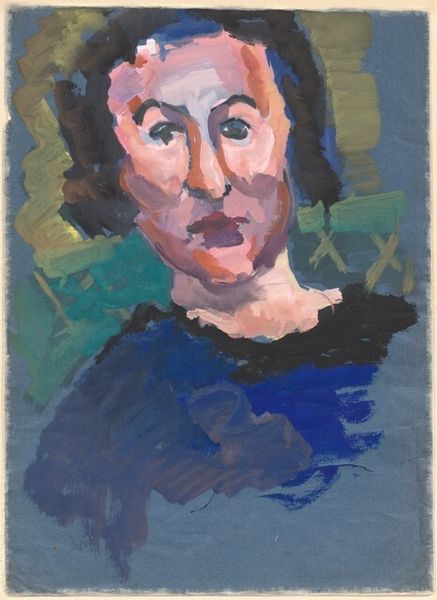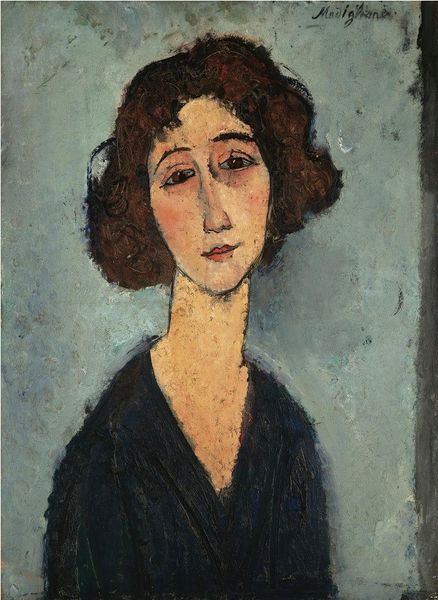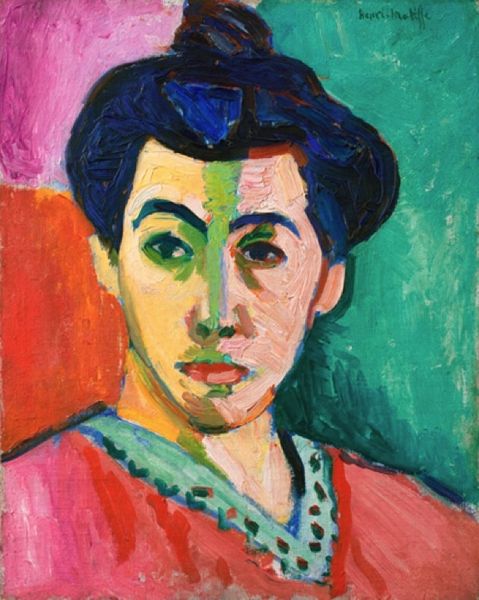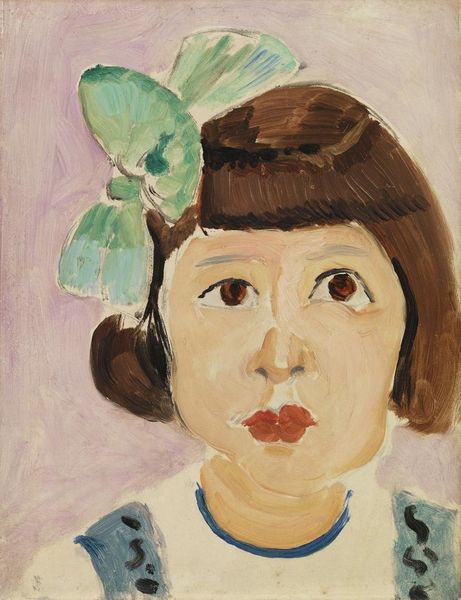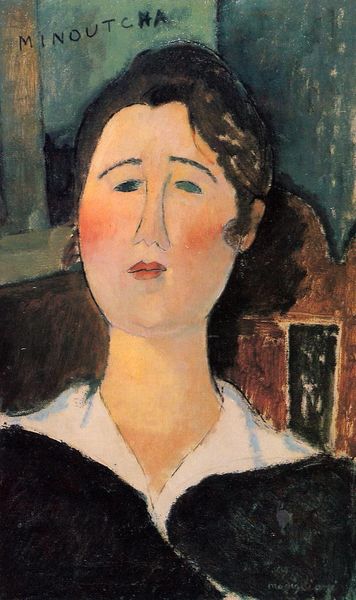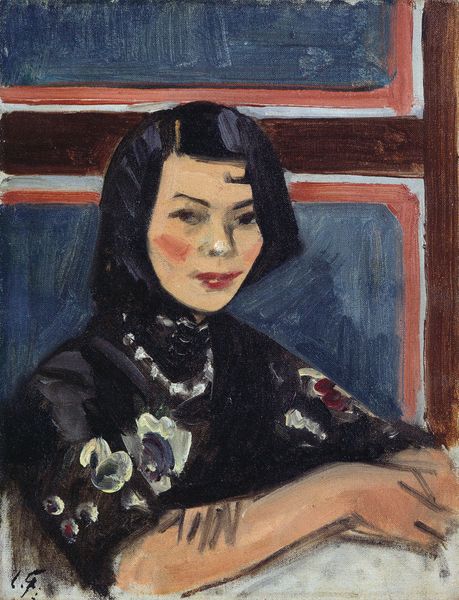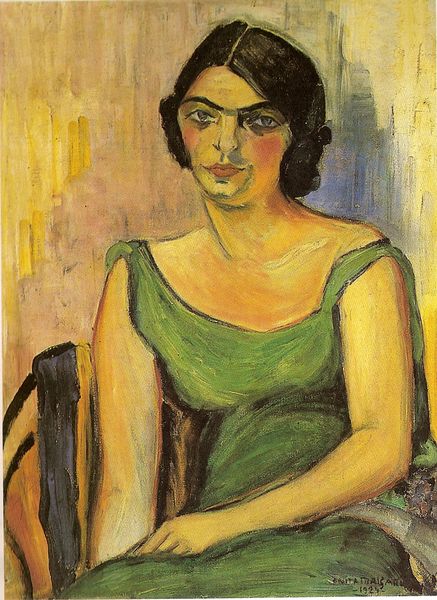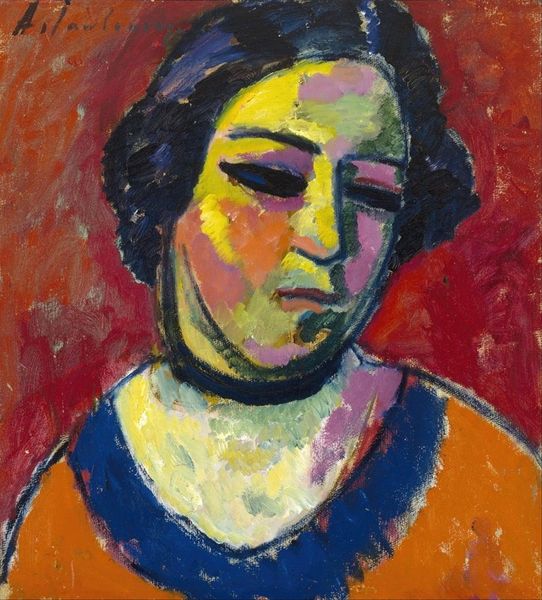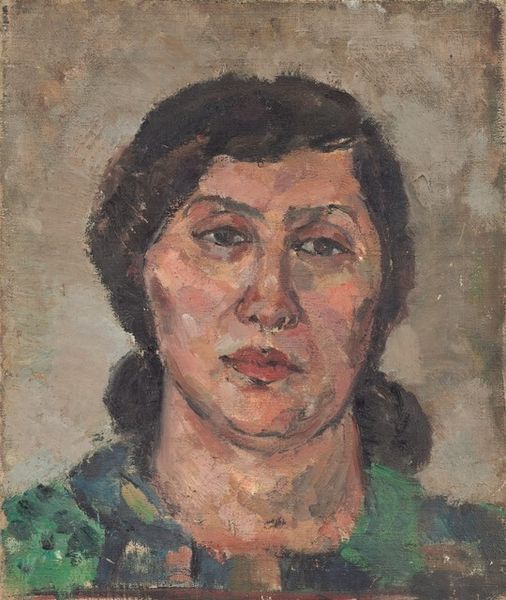
Copyright: Modern Artists: Artvee
Editor: This is Henri Matisse's "Tête de femme penchée," created sometime between 1916 and 1917 using oil paint. What strikes me immediately is the direct gaze and simplified forms, giving her a powerful yet vulnerable presence. How do you interpret this work? Curator: It's fascinating to consider this portrait within the context of World War I, which was raging during its creation. The formal reduction, almost a mask-like quality, can be seen as a reflection of the anxieties and alienation of the time. Consider how the "primitive" became a recurring theme, how different communities or marginalized subjects were viewed. Does this image echo an almost uncomfortable appropriation and stylization of otherness? Editor: That's a really interesting point. I hadn't thought about the broader social anxieties influencing the simplification of form. But does this also apply to the subject's apparent lack of agency, or maybe it challenges conventional representation? Curator: Precisely. While Matisse’s Fauvist roots emphasized subjective expression through vibrant color, here, the muted palette suggests a somber restraint. We must consider whose stories are being told, and how. Is she merely a passive object of the artist’s gaze, or does that tilted head signify something more… a burden, a contemplation, resistance even? Think about feminist art history: how have women artists challenged the male gaze and reclaimed agency in their own self-portraits and depictions of other women? Editor: So, understanding the historical context and feminist perspectives helps us question the power dynamics represented in the portrait itself. It’s no longer just about aesthetic appreciation, but also about critically examining its social implications. Curator: Exactly. This piece isn't just an aesthetic object; it’s a cultural artifact that embodies the complex tensions of its time, prompting us to investigate further and challenge pre-conceived narratives. Editor: I will never see portraits the same way. Curator: Hopefully for the better.
Comments
No comments
Be the first to comment and join the conversation on the ultimate creative platform.
